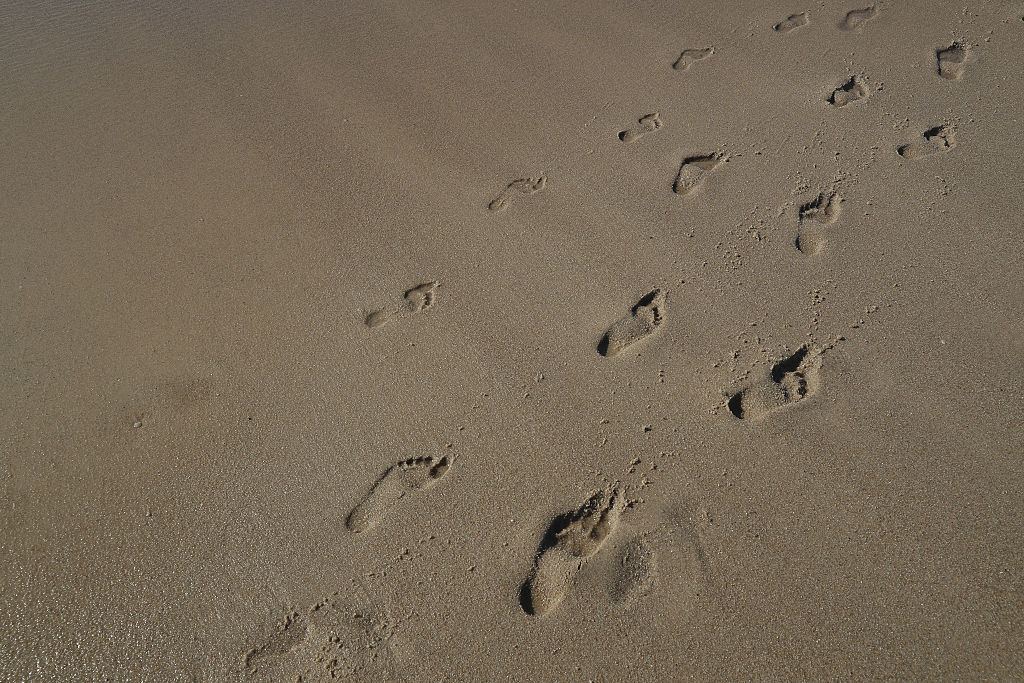'This is a dream find': Scientists' 'bombshell' discovery in the 'peopling' of America


A free daily email with the biggest news stories of the day – and the best features from TheWeek.com
You are now subscribed
Your newsletter sign-up was successful
"Astonishingly old" human footprints preserved in the ground across New Mexico's White Sands National Park have been determined to date back about 23,000 years to the Ice Age, a finding which, if certified, "would rejuvenate the scientific debate about how humans first spread across the Americas," The New York Times reports.
"I think this is probably the biggest discovery about the peopling of America in a hundred years," said Ciprian Ardelean, an archaeologist at Autonomous University of Zacatecas in Mexico who was not involved in the discovery. "I don't know what gods they prayed to, but this is a dream find."
For years, many archaeologists have maintained that humans "spread across North and South America only at the end of the last ice age," writes the Times. And starting in the 1970s, some researchers began to go back even further for humanity's presence in North America — some 26,000 years. But of the fossils and ancient finds they pointed to to support such a hypothesis, "none of them are unequivocal," said archaeologist Ben Potter; layers of sediment, perhaps, may have made a find appear older than it really is.
The Week
Escape your echo chamber. Get the facts behind the news, plus analysis from multiple perspectives.

Sign up for The Week's Free Newsletters
From our morning news briefing to a weekly Good News Newsletter, get the best of The Week delivered directly to your inbox.
From our morning news briefing to a weekly Good News Newsletter, get the best of The Week delivered directly to your inbox.
The footprints, however, are far more definitive pieces of evidence that suggest humans journeyed across the Americas "when massive glaciers covered much of their path," writes the Times. "What is fascinating about the study of footprints is that they present snapshots in time," said Dr. Mathew Stewart, a zooarchaeologist not involved in the study.
"This is a bombshell," added Ruth Gruhn, another archaeologist, of the study. "On the face of it, it's very hard to disprove."
On that note, Dr. Potter said he would still like to see some stronger data; if it is true, however, he notes the discovery would have "some profound implications." Read more at The New York Times.
A free daily email with the biggest news stories of the day – and the best features from TheWeek.com
Brigid Kennedy worked at The Week from 2021 to 2023 as a staff writer, junior editor and then story editor, with an interest in U.S. politics, the economy and the music industry.
-
 How the FCC’s ‘equal time’ rule works
How the FCC’s ‘equal time’ rule worksIn the Spotlight The law is at the heart of the Colbert-CBS conflict
-
 What is the endgame in the DHS shutdown?
What is the endgame in the DHS shutdown?Today’s Big Question Democrats want to rein in ICE’s immigration crackdown
-
 ‘Poor time management isn’t just an inconvenience’
‘Poor time management isn’t just an inconvenience’Instant Opinion Opinion, comment and editorials of the day
-
 Blue Origin launches Mars probes in NASA debut
Blue Origin launches Mars probes in NASA debutSpeed Read The New Glenn rocket is carrying small twin spacecraft toward Mars as part of NASA’s Escapade mission
-
 Dinosaurs were thriving before asteroid, study finds
Dinosaurs were thriving before asteroid, study findsSpeed Read The dinosaurs would not have gone extinct if not for the asteroid
-
 SpaceX breaks Starship losing streak in 10th test
SpaceX breaks Starship losing streak in 10th testspeed read The Starship rocket's test flight was largely successful, deploying eight dummy satellites during its hour in space
-
 Rabbits with 'horns' sighted across Colorado
Rabbits with 'horns' sighted across Coloradospeed read These creatures are infected with the 'mostly harmless' Shope papilloma virus
-
 Lithium shows promise in Alzheimer's study
Lithium shows promise in Alzheimer's studySpeed Read Potential new treatments could use small amounts of the common metal
-
 Scientists discover cause of massive sea star die-off
Scientists discover cause of massive sea star die-offSpeed Read A bacteria related to cholera has been found responsible for the deaths of more than 5 billion sea stars
-
 'Thriving' ecosystem found 30,000 feet undersea
'Thriving' ecosystem found 30,000 feet underseaSpeed Read Researchers discovered communities of creatures living in frigid, pitch-black waters under high pressure
-
 New York plans first nuclear plant in 36 years
New York plans first nuclear plant in 36 yearsSpeed Read The plant, to be constructed somewhere in upstate New York, will produce enough energy to power a million homes
